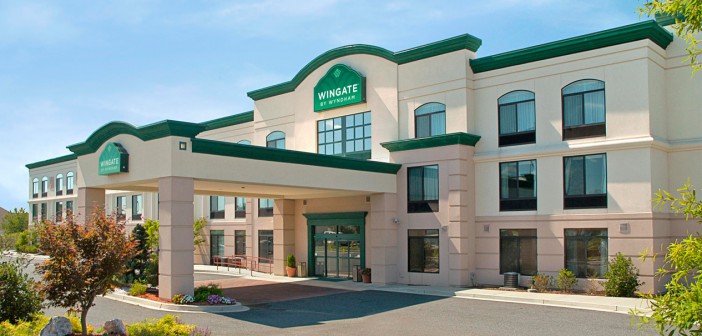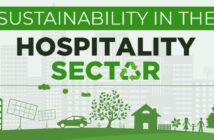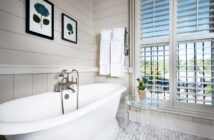When caring for the environment, hoteliers should focus on these three basic components of landscaping.
by MIKE FITZPATRICK
For hoteliers, the long-term cost savings associated with going green has made environmentally friendly landscaping an increasingly attractive option. But for many hotel owners and property managers, going green can seem like an overwhelming task, as they don’t know where to start.
Because there are so many high-tech methods of going green on the market today – from using biodegradable hydraulic fuels, to composting, for example – basic principles of sustainable landscaping have often been overlooked. By focusing on the three most basic components of your landscape (fuel, water and grass), you will be able to successfully implement green practices and get the most bang for your buck.
Alternative fuel sources
When considering the biggest threat to the environment, the release of greenhouse gases from fossil fuels is at the top of the list. One simple way to promote a sustainable green landscape is by taking a look at the type of equipment your landscaping professionals are using on your hotel’s property. If they’re using outdated equipment, it might be time to have a conversation with them. Alternatively, if you’re looking to hire a new landscaping contractor, building specifications into your contract such as age of equipment and emission standards can help you protect the environment.
Below are three types of alternative fuel sources that emit little to no carbon monoxide emissions and help increase landscaping sustainability.
Propane
Due to the progressively toxic effects gasoline-powered equipment has on the environment, more manufacturers are replacing their gasoline-powered equipment with propane-powered mowers and trimmers. Many companies turn to propane fueled equipment because it is similar in price to gasoline.
From an environmental standpoint, propane-powered mowers have a lower carbon footprint than gasoline powered, meaning they burn cleaner and emit fewer greenhouse gases. Efficiency is also a non-issue, as propane burns the same per-gallon ratio as gasoline.
Electric
Out of all the power options on the market today, battery powered mowers and trimmers are the most user-friendly and safest energy source. Since battery powered equipment runs exclusively on electricity, they emit zero traces of carbon monoxide. In addition, electric powered equipment helps to protect the health of surrounding wildlife, as it doesn’t require any oil, which has been known to pose great threats to the ecosystem.
Cost-wise, battery powered tools are going to be more expensive, as they’re fairly new on the market. Due to their small size, it’s also important to point out that battery-powered mowers are best suited for those who maintain smaller properties. However, battery-powered trimmers are still a viable and efficient option on every property.
Irrigation systems
Water is a year-round expense and is recognized as the life-blood of a landscape. Unfortunately, many hotel owners and managers aren’t aware of the amount of water wasted each year, and as a result are making poor irrigation decisions. Experts from the Environmental Protection Agency (EPA) predict as much as 50 percent of water used for irrigation is wasted due to evaporation, wind or runoff caused by inefficient irrigation methods and systems. In an effort to help people reduce water wasted through irrigation, the EPA has set up WaterSense-labeled smart controllers, moisture sensors and drip irrigation systems to help consumers conserve water and save money.
Smart controllers and moisture sensors
Smart controllers have the ability to take into account current weather conditions, soil conditions and the type of plants found on the property to help reduce water consumption. Because smart controllers have a built-in memory, they’re able to store this data to accurately determine how much water is needed throughout the day. Features such as moisture sensors, freeze sensors and wind sensors have also been introduced to the market to further decrease consumption costs.
Drip irrigation
Drip irrigation decreases the chance of overwatering, runoff and the spread of disease. This system is designed to help those with plant beds located in narrow areas (e.g., next to footpaths and entranceways). Because drip irrigation runs right below the surface of plant beds, the water is applied (drips) directly onto the plants’ roots, which helps keep footpaths dry and your plants alive.
From a financial standpoint, drip irrigation systems are more expensive compared to typical spray heads. However, this method of irrigation ends up paying for itself, as it eliminates the risk of potential falls and overwatered vegetation.
Grass selection
The best way to further reduce landscaping costs is by looking at what could be potentially the largest component of your hotel’s property, your grass. While it’s true that hotel owners and managers can save on costs by planting less foliage and flowers, skimping on grass isn’t really an option. However, the type of grass you choose to have planted on your property can make a real economic difference in your wallet.
For example, when selecting the right type of grass for your property, it’s critical to go over each grass’ requirements with your contractor. Because grass can host a variety of diseases, requirements such as water, fertilization, insecticide and fungicide requirements are all factors that need to be analyzed before making a decision. It’s important to point out that the right type of grass for your property isn’t always going to be the most aesthetically pleasing one.
As you can see, going green doesn’t have to be such a sophisticated process. By focusing on your fuel selection, irrigation system and grass selection, hotel owners and managers will be able to create an eco-friendly landscape and see a positive return on their investment in a short amount of time. ■
Mike Fitzpatrick serves as vice president of U.S. Lawns. Fitzpatrick has 30 years of experience in the industry, and his leadership has made U.S. Lawns one of the most respected landscape management choices in the country. When he’s not focused on growing the business, Fitzpatrick enjoys dedicating himself to his passion for cycling.




